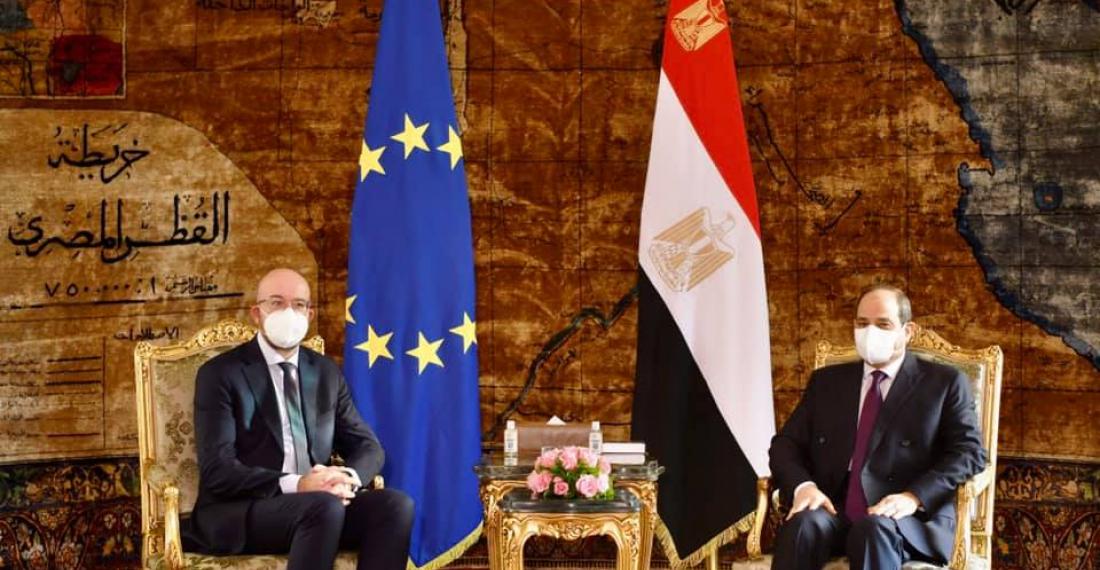President of the European Council, Charles Michel met yesterday wit President Abdel Fattah El Sisi of Egypt.
The meeting focused on bilateral relations between Egypt and the EU and ways to promote them at various levels. It also tackled a multitude of regional and international issues pertaining to regional security, in light of Egypt and the EU’s pivotal roles in maintaining security and stability in the East Mediterranean and the Middle East regions as well as Europe and the African continent.
The two sides confirmed their commitment to continuing their regular consultations to further advance bilateral relations, within a framework of mutual respect and real participation so as to achieve their common interests and coordinate positions to counter challenges in the region.
The meeting discussed various aspects of the relationship between Egypt and the EU, particularly trade and economic relations. This is in addition to their mutual coordination on the various important regional and international issues, including the Libyan crisis. President El Sisi underscored the need to capitalize on the momentum generated recently so as to forge a comprehensive political settlement to the Libyan dossier, in line with the resolutions and outcomes of the Berlin Conference and the Cairo Declaration. This is in addition to ensuring a sustainable ceasefire, as well as ending foreign intervention and the transfer of foreign fighters and mercenaries to Libyan territories.
President El Sisi outlined Egypt’s vision with regard to the overall developments in regional dossiers, particularly the situation in the Middle East. He emphasized the importance of strengthening international efforts to halt any unilateral activities or measures that oppose the rules of international law or violate UN resolutions relevant to combating terrorism.
The meeting also tackled the latest developments pertinent to The Grand Ethiopian Renaissance Dam as well as the situations in Syria, Libya and Yemen. There was an alignment in views with regard to the need to adhere to comprehensive political settlements to address these issues, in a manner that shall preserve the national institutions as well as the sovereignty and territorial integrity of the states and end illegal foreign intervention in an effort to restore security and stability and achieve a better future for the peoples.
Photo: Charles Michel and Abdel Fattah El Sisi in Cairo.
Source: Commonspace.eu with Spokesman of Egyptian Presidency.






